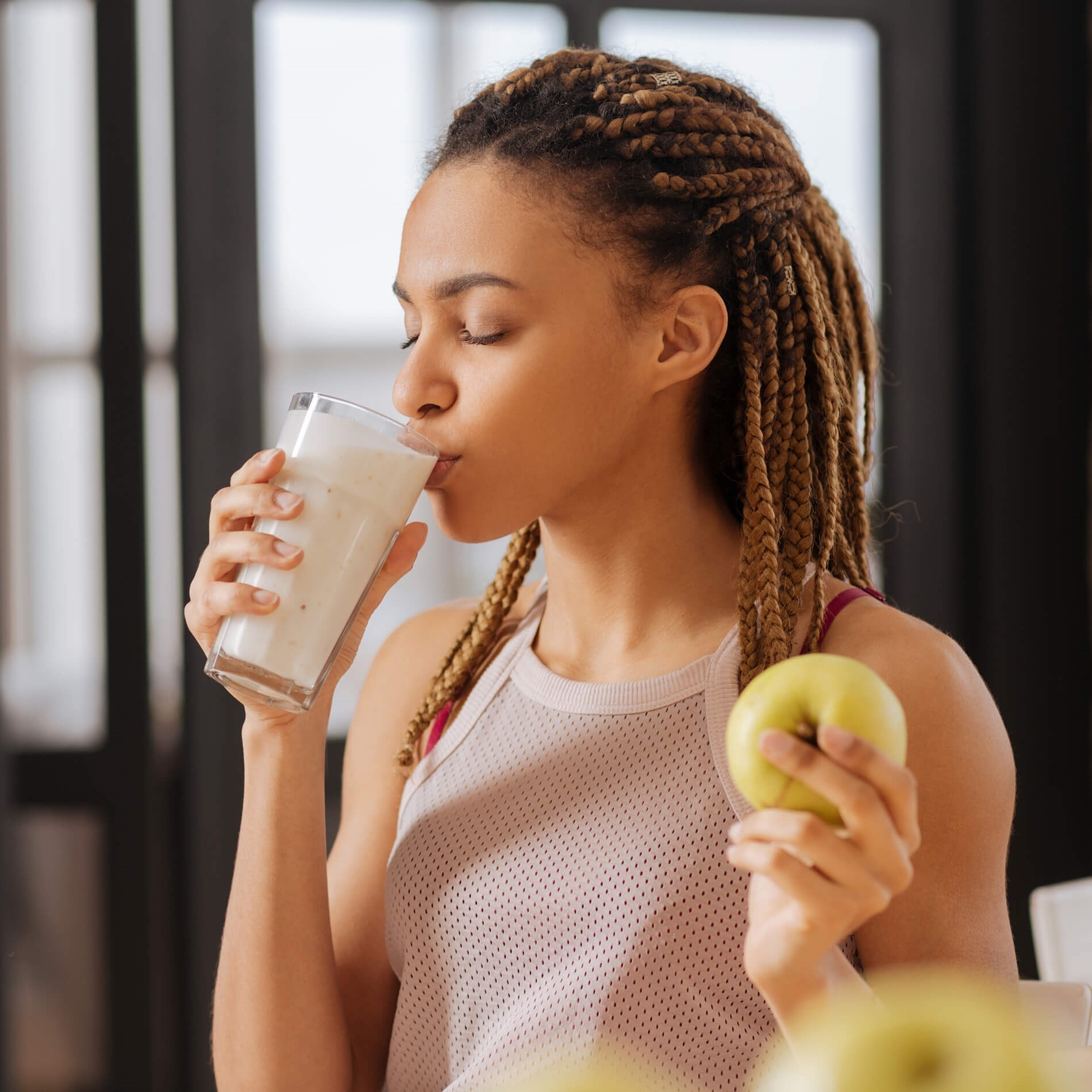Constipation and Nausea: Are they related?
Constipation may sometimes lead to feeling nauseous. There are a number of reasons for this, and we aim to help you determine what may be driving your symptoms, as well as to suggest some simple home remedies to try.
- How is nausea related to constipation?
- Managing constipation and nausea
- Medical advice for severe constipation
How is nausea related to constipation?
Nausea can be an unpleasant associated side effect of constipation1.
IBS is one of the main causes of constipation and associated nausea due to its impact on altered digestion, as well as abdominal cramps and discomfort2. You can read more about IBS here.
A build-up of toxins is also thought to be a contributing factor in the link between constipation and nausea. The bowel is essentially a key organ of detoxification and when bowel motility is reduced and you are not passing movements regularly (at least daily) there is an inevitable build-up of toxins which are then reabsorbed by the body, and these circulating toxins can lead to nausea. You may also notice that your skin is affected by constipation, possibly leading to acne, eczema and other skin disorders3.

Managing constipation and nausea
Adding a slice or two of fresh lemon to hot water and drinking first thing in the morning and before meals can help to stimulate bile flow, stomach HCL and digestive enzymes which may help relieve nausea and also help get the bowels moving.
Apple Cider Vinegar is a traditional yet very effective remedy for boosting digestive function, and may also help relieve nausea and sickness. It is worth starting with a small amount of Apple Cider Vinegar and building it up gradually, particularly if you have a sensitive system, as it may prove to be very effective and it is a good idea to let your system get used to it. Start with a 1/4 capful of vinegar in a small amount of water approximately 30 minutes before meals and then increase to a capful if well tolerated.
In some people there are certain foods that may exacerbate constipation that can lead to a sensation of sickness. Dairy foods, as well as wheat, are often regarded as common trigger foods for those with a food intolerance, particularly in women4. It might be worth trying a dairy-free diet for a period of time to see if it helps alleviate your symptoms. There are plenty of good quality, dairy free alternatives available in both independent health food shops and some supermarkets and it is certainly worth experimenting.
Both peppermint and fennel tea are considered to be digestive aids, and have a soothing and carminative effect on the digestive system5. This can help to reduce symptoms of IBS such as cramping, and also help digestion with the aim of improving constipation. Ginger is historically renowned for its benefits as an anti-emetic (anti-sickness) herb. Try grating it into hot water, or eating sugar-free ginger biscuits to help alleviate a feeling of nausea.
When should I seek medical advice?
If your constipation is severe (you have not passed a stool for several days) and you are also experiencing vomiting and/or a fever, we would recommend seeking advice from your GP. It is possible that there may be some kind of bowel blockage or obstruction. A bowel obstruction may occur when either the small or large intestine becomes partly or completely blocked - this prevents all fluid, food and gas from moving through the intestines, causing severe pain as well as nausea and vomiting. Medical advice should be sought in this case.
You may like to read more about how to maintain a healthy bowel, as well as some suggested natural remedies to help relieve constipation in the following articles:
References
- Portalatin M, Winstead N. Medical management of constipation. Clin Colon Rectal Surg. 2012 Mar;25(1):12-9. doi: 10.1055/s-0032-1301754. PMID: 23449608; PMCID: PMC3348737.
- Jadallah KA, Kullab SM, Sanders DS. Constipation-predominant irritable bowel syndrome: a review of current and emerging drug therapies. World J Gastroenterol. 2014 Jul 21;20(27):8898-909. doi: 10.3748/wjg.v20.i27.8898. PMID: 25083062; PMCID: PMC4112860.
- Bowe WP, Logan AC. Acne vulgaris, probiotics and the gut-brain-skin axis - back to the future? Gut Pathog. 2011 Jan 31;3(1):1. doi: 10.1186/1757-4749-3-1. PMID: 21281494; PMCID: PMC3038963.
- Aslam H, Mohebbi M, Ruusunen A, Dawson SL, Williams LJ, Berk M, Holloway-Kew KL, Collier F, Loughman A, Pasco JA, Jacka FN. Associations between dairy consumption and constipation in adults: A cross-sectional study. Nutr Health. 2022 Mar;28(1):31-39. doi: 10.1177/02601060211004784. Epub 2021 Apr 8. PMID: 33827333.
- Chumpitazi BP, Kearns GL, Shulman RJ. Review article: the physiological effects and safety of peppermint oil and its efficacy in irritable bowel syndrome and other functional disorders. Aliment Pharmacol Ther. 2018 Mar;47(6):738-752. doi: 10.1111/apt.14519. Epub 2018 Jan 26. PMID: 29372567; PMCID: PMC5814329.
Popular Articles
View all Digestive Health articles-
Digestive Health20 Aug 2024
-
Digestive Health27 Apr 2021

